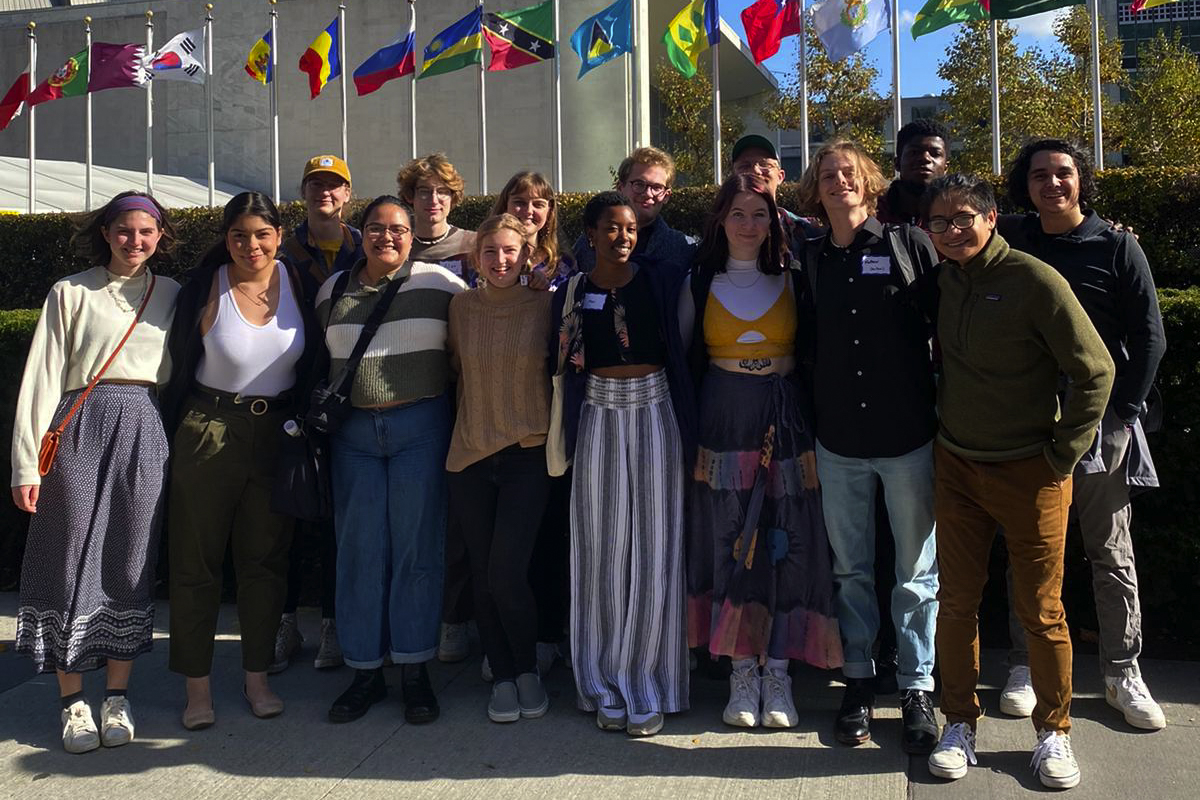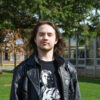Goshen College sent a group of students to the United Nations headquarters in New York City from Wednesday, Nov. 2, to Friday, Nov. 4, to participate in a Mennonite Central Committee seminar.
Most of the students in attendance were sophomores or juniors majoring in history or peace, justice and conflict studies (PJCS). Students from other Mennonite institutions in the United States and Canada were also present.The trip was coordinated by Lisa Miller, administrative assistant; Regina Shands Stoltzfus, professor of PJCS and director of PJCS; and Philipp Gollner, associate professor of history. Students traveled to New York City independently via plane or train.
“The flight to New York was smooth, although we met to leave for the airport at 2:30 a.m., so most of the ride was spent just trying to make up for lost sleep,” said Emma Gingerich, a sophomore history major.
Dan Eash-Scott, a junior history major, opted for a scenic train ride. “Watching the countryside roll by and traveling with good friends was a wonderful experience,” he said.
Upon arrival, the students spent time in the seminar learning about and discussing issues of armed conflict and diplomacy. The ongoing war in Ukraine was a major talking point.
The Albanian representative on the U.N. Security Council, Ferit Hoxha, was one of the speakers. One issue the global community currently faces is that Russia is a permanent member of the Security Council, making it nearly impossible to pass any resolution to take action against Russia.
For many students, meeting Hoxha was a highlight of the trip. “He was only supposed to speak with us for 45 minutes, but he ended up staying for an hour and a half answering our questions,” Gingerich said. “It was refreshing and reassuring to hear from someone who clearly had a global and humanitarian mindset.”
“It gave me a lot of hope for our future to see so many people under one roof, all striving for peace and unity,” Eash-Scott said, recalling his experience touring U.N. headquarters.
His spare time on the trip was also enriching: “I also really enjoyed just walking around the city and stopping by The New York Times building where I dream of working one day.”
Greta Lapp Klassen, a senior art and English double major, said that “it was also cool … to see a statue dedicated to MJ Sharp.”
Sharp was a Mennonite who worked with the U.N. on peacemaking in the Democratic Republic of the Congo. That work cost him his life, and the U.N. has honored his sacrifice by erecting a statue in his memory.
“It was great to see all the passion that people have for peace and justice,” Lapp Klassen added.
The environment of the seminar also provided an opportunity for deep conversations. “It gives me hope to know that other people my age are asking similar questions as I am and willing to wrestle with what peacemaking looks like in contexts of sustained violence,” Gingerich said.
“One thing I took away is that calling for peace and calling myself an absolute pacifist is a privileged and sheltered approach to peace. In some situations, it’s not fair nor is it empathetic to say that pacifism is the only route forward,” said Eash-Scott.
“You cannot truly call yourself a pacifist if you’ve never been in an oppressive, violent situation where your life and the lives of your loved ones are in danger,” he added.



